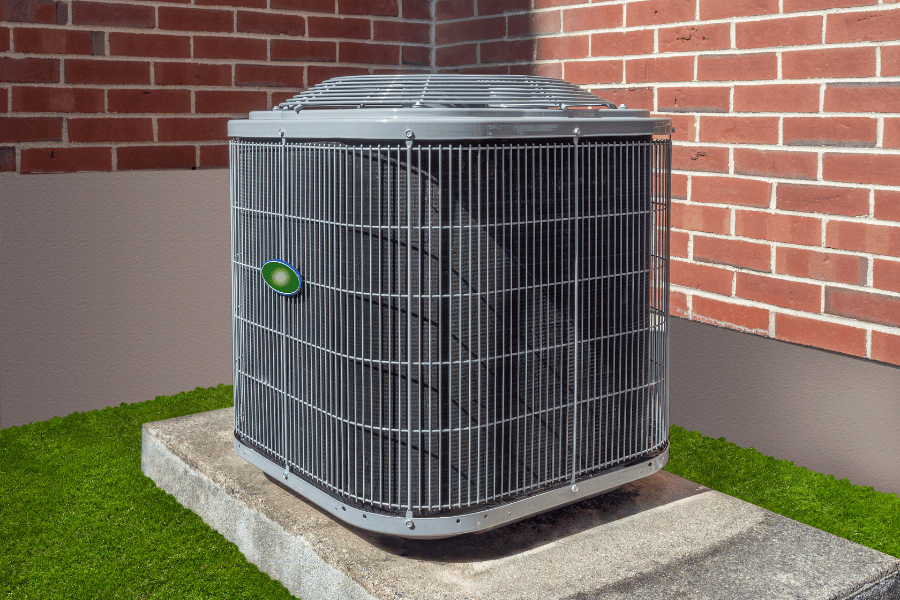Heating and cooling systems play a vital role in ensuring indoor comfort throughout the year. As a homeowner, it is essential to understand the lifespan of these systems to make informed decisions about maintenance, repairs, and replacements.

In this blog post, we will delve into the average lifespan of heating and cooling systems, factors that influence their longevity, and steps you can take to maximize their lifespan.
Understanding Average Lifespan
The average lifespan of a heating and cooling system can vary depending on several factors, including the type of system, its quality, usage patterns, maintenance practices, and environmental conditions. However, as a general guideline, most HVAC professionals estimate the average lifespan of these systems to be around 15 to 20 years.
Factors Influencing Lifespan
- System Quality: The quality of the heating and cooling system plays a significant role in determining its lifespan. High-quality systems from reputable manufacturers tend to have a longer lifespan compared to lower-quality alternatives.
- Regular Maintenance: Proper and regular maintenance is crucial for the longevity of any HVAC system. Routine maintenance, including professional inspections, cleaning, and tune-ups, helps identify and address minor issues before they escalate, ensuring optimal performance and extending the lifespan of the system.
- Usage Patterns: The frequency and duration of system usage also impact its lifespan. Systems that are operated excessively or subjected to constant temperature fluctuations may experience more wear and tear, potentially shortening their lifespan.
- Environmental Factors: The climate and environmental conditions in which the heating and cooling system operates can influence its longevity. Extreme temperatures, high humidity, corrosive atmospheres, and poor air quality can accelerate the deterioration of system components.
Maximizing Lifespan
While the average lifespan provides a rough estimate, there are steps you can take to maximize the lifespan of your heating and cooling system:
- Regular Maintenance: Adhering to a maintenance schedule is crucial. Consider scheduling professional inspections and maintenance at least once a year, ideally before the start of each heating and cooling season. This ensures that any potential issues are promptly identified and resolved, optimizing the system’s lifespan.
- Air Filter Replacement: Clean air filters are essential for the efficient operation of HVAC systems. Regularly inspect and replace the air filters according to the manufacturer’s guidelines or as recommended by your HVAC professional. Clogged filters restrict airflow, causing strain on the system and potentially shortening its lifespan.
- Temperature and Humidity Control: Avoid frequent and drastic temperature changes, as they can strain the system. Utilize programmable thermostats to maintain consistent and moderate indoor temperatures. Controlling humidity levels with appropriate ventilation or dehumidification systems can also reduce the strain on the system and extend its lifespan.
- Proper Ventilation: Ensure proper airflow throughout your home by keeping vents and registers clean and unobstructed. Blocked or closed vents can lead to inefficient operation and potential damage to the system.
- Professional Installation and Repairs: Proper installation by qualified HVAC professionals is crucial for the optimal performance and longevity of your system. Additionally, address any repairs or issues promptly to prevent further damage and to ensure the system operates at its best.
While the average lifespan of a heating and cooling system ranges from 15 to 20 years, various factors can influence its longevity. Regular maintenance, proper usage, and environmental conditions all play vital roles in maximizing the lifespan of your system.
By adhering to recommended maintenance practices, monitoring airflow and temperature, and promptly addressing any issues, you can ensure that your heating and cooling system serves you well for many years to come.
Remember, consulting with a professional HVAC technician can provide personalized guidance and help you make informed decisions about maintenance, repairs, and replacements.
If you are experiencing a problem with your air conditioning or heating call us at 512-336-1431 to schedule an appointment. We’ll be glad to come out and take a look at the issue.
1431-183 A/C & Heating proudly serves Round Rock, Georgetown, Cedar Park, Pflugerville, Leander, Liberty Hill, and North Austin.
